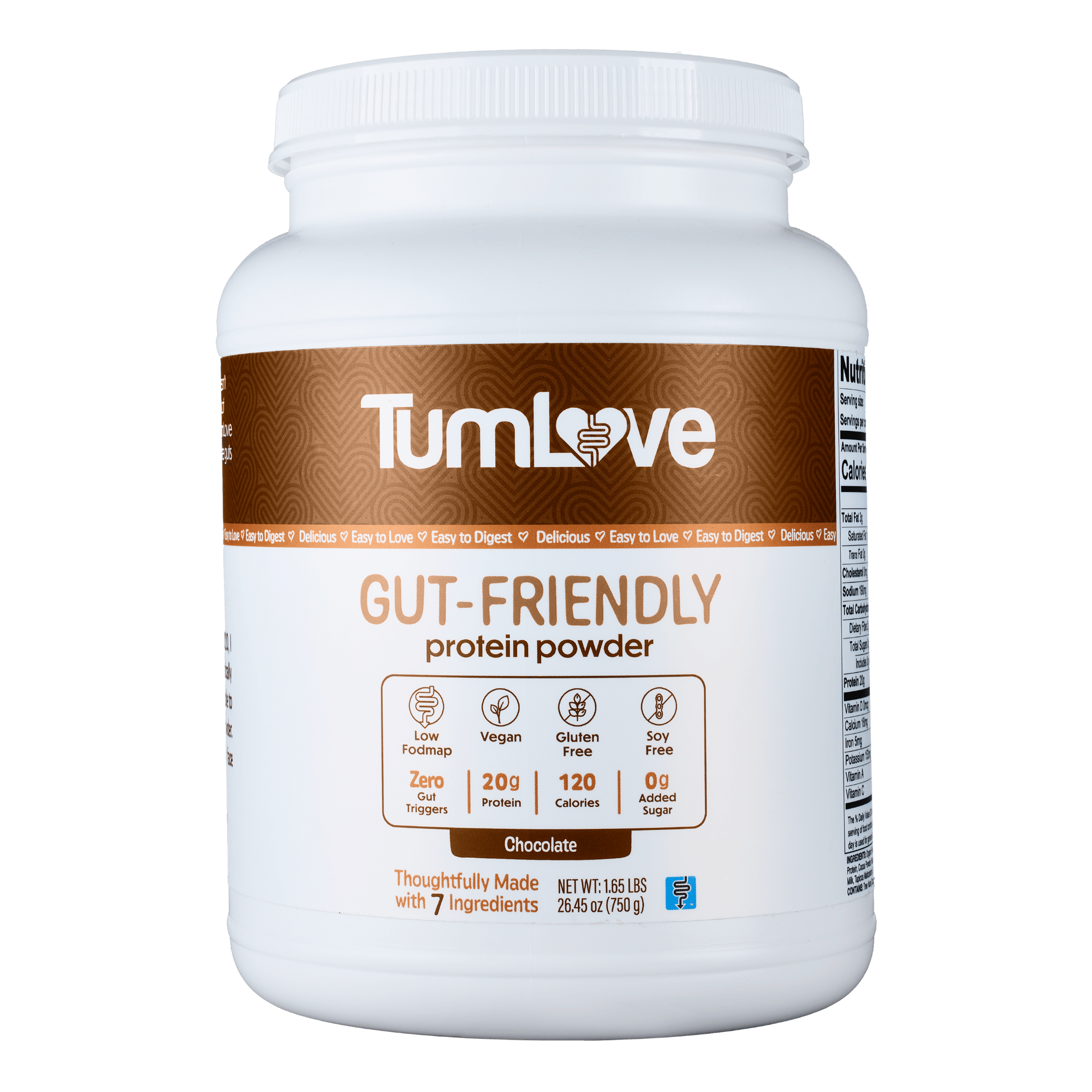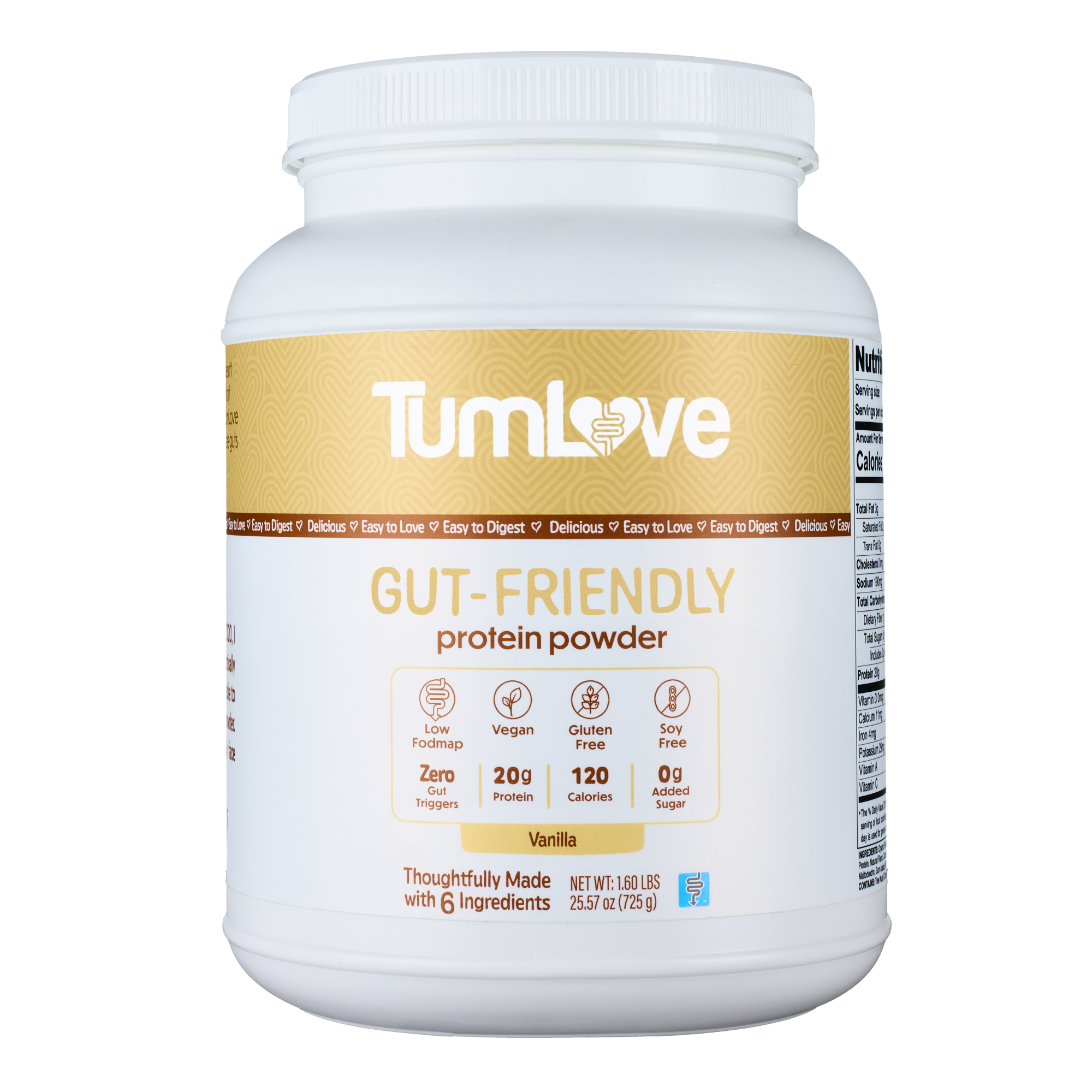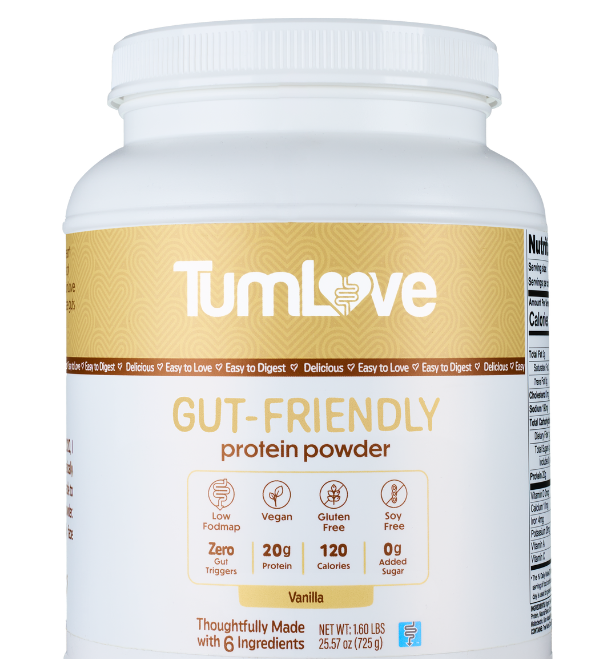Here at TumLove, we're passionate about more than just creating our belovedLow FODMAP Gut Friendly Protein Powder. We're also dedicated to empowering our community with information that enhances their understanding of gut health and provides practical strategies for managing various digestive health concerns.
One such concern is Crohn's disease, a type of inflammatory bowel disease that can significantly impact daily life and diet. It's a complex condition, but with the right dietary strategy, its symptoms can become more manageable.
★★★★★
"Now I can do what I love while feeling great!"
- Lileia S.
Crohn's Disease Diet: Your Comprehensive Guide to Better Gut Health
Managing Crohn's Disease isn't just about medication; it's about adopting a dietary lifestyle that helps maintain remission, manage symptoms, and improve quality of life. Here, we will delve into the depths of what a Crohn's Disease Diet entails, how it can help you manage your condition, and the best foods to include in your diet plan.
What is Crohn's Disease?
Crohn's Disease is a chronic inflammatory bowel disease (IBD) that affects the lining of the digestive tract. It can lead to severe diarrhea, fatigue, weight loss, and malnutrition. With inflammation extending into the layers of affected bowel tissue, it can be both painful and debilitating, significantly impacting a person's quality of life.
Why a Crohn's Disease Diet Matters
A well-planned diet can play a crucial role in managing Crohn's Disease. Since food doesn't cause or cure Crohn's Disease, the goal of a Crohn's Disease Diet isn't about eliminating the disease but rather about managing the symptoms, preventing flares, and promoting overall wellness.
Key Components of a Crohn's Disease Diet
What should you include in your Crohn's Disease Diet? Below, we list some key food groups and explain why they're essential for managing Crohn's Disease.
1. Easy-to-Digest Foods
The first step towards managing Crohn's Disease is to consume foods that are easy on your gut. This means foods that are low in fiber and fat as these can exacerbate symptoms during a flare-up. Some examples of easy-to-digest foods include:
- White bread
- White rice
- Lean proteins like chicken and fish
- Well-cooked fruits and vegetables without skin or seeds
2. Nutrient-Rich Foods
Because of the nature of Crohn's Disease, it can sometimes be difficult to get all the nutrients your body needs. Therefore, it's essential to focus on nutrient-rich foods whenever possible. This includes:
- Fruits and vegetables (cooked and without skin or seeds during flare-ups)
- Lean proteins
- Healthy fats, such as those found in avocados and olive oil
3. Plenty of Fluids
Dehydration is a common concern for people with Crohn's Disease, particularly during flare-ups when diarrhea is severe. It's important to drink plenty of fluids throughout the day. Water is the best choice, but other options like broth and rehydration solutions can also be beneficial.
4. High-Quality Protein
Protein is essential in a Crohn's Disease Diet as it helps repair body tissues. High-quality protein also provides essential nutrients and contributes to feelings of fullness, which can prevent overeating that can exacerbate symptoms. Examples of high-quality protein include lean meats, fish, and TumLove's gut-friendly protein powder.
Implementing a Crohn's Disease Diet
While adopting a new diet may seem challenging, especially if you're dealing with the symptoms of Crohn's Disease, it is achievable with a little planning and perseverance. Here are some tips:
1. Start Small
Don't try to overhaul your entire diet overnight. Instead, start by making small, manageable changes. This might mean swapping out your regular bread for a white loaf or introducing a new vegetable into your diet.
2. Listen to Your Body
Every person's experience with Crohn's Disease is different, so what works for one person might not work for another. Pay attention to how your body reacts to different foods and adjust your diet accordingly.
3. Seek Professional Advice
It can be beneficial to work with a dietitian or nutritionist who is familiar with Crohn's Disease. They can help you formulate a diet plan that suits your individual needs and preferences.
4. Add TumLove Protein Powder
Enriching your diet with TumLove's protein powder is an easy way to ensure you're getting enough protein in your diet. It's vegan, low FODMAP, and delicious, making it a convenient and tasty addition to your Crohn's Disease Diet.
The Role of Fiber in a Crohn's Disease Diet
There is a common misconception that individuals with Crohn's disease should avoid fiber. While it's true that during a flare-up, a low-fiber diet is recommended to reduce the workload on the digestive system, in periods of remission, fiber can actually be beneficial. Fiber promotes good gut health, aids digestion, and provides the raw materials that your gut bacteria need to thrive. However, the type of fiber consumed is important - focus on soluble fiber found in oats, bananas, and psyllium, which is easier on the gut than insoluble fiber.
Food to Avoid in a Crohn's Disease Diet
Just as certain foods can help manage Crohn's disease, others can exacerbate symptoms. Although everyone is different, common foods to avoid include:
- Alcohol
- Caffeine
- High-fat foods
- Dairy products (if lactose intolerant)
- Spicy foods
- Carbonated drinks
It can be helpful to keep a food diary to track which foods might be triggering your symptoms.
Nutritional Supplements and Crohn's Disease
In addition to a balanced diet, some people with Crohn's disease may benefit from nutritional supplements. Multivitamins, iron, vitamin B12, and calcium supplements can help make up for any nutritional deficiencies due to malabsorption. Always consult with a healthcare provider before starting any new supplement regimen.
Benefits of a Plant-Based Diet for Crohn's Disease
While it's not for everyone, some people with Crohn's disease find that a plant-based diet helps manage their symptoms. This type of diet emphasizes fruits, vegetables, whole grains, and plant-based proteins, while minimizing or eliminating animal products. A plant-based diet can offer a wide range of nutrients and is often high in fiber, which can support gut health. However, it's crucial to ensure you're still getting all the necessary nutrients, especially protein and B-vitamins, which can be harder to come by on a plant-based diet. This is where TumLove's protein powder can be especially beneficial.
Let's Wrap This Up!
Living with Crohn's Disease can be a challenge, but adopting a strategic diet can help manage symptoms, reduce flare-ups, and enhance your quality of life. It's essential to remember that everyone is unique, and what works for one person might not work for another. Experiment with different foods, keep track of your symptoms, and most importantly, listen to your body.
Shop Now




